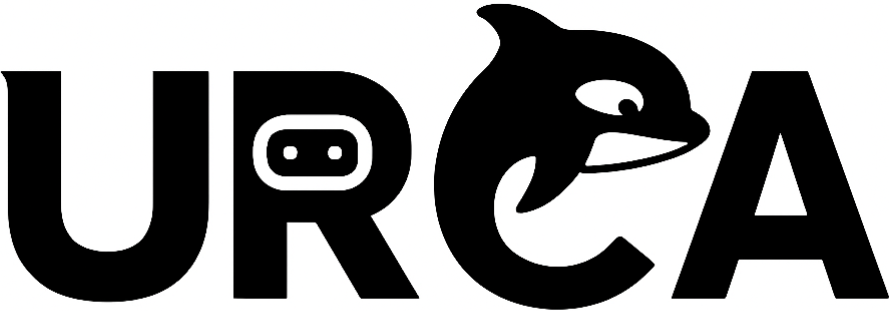Roots of Determination: Ancestral Heritage and Family Background
The story of Lucy Guo is a tapestry woven through generations of resilience, intellect, and ambition, anchored by her roots in a family of Chinese immigrant engineers. Lucy was born on October 14, 1994, in Fremont, California, a city perched on the edge of Silicon Valley—a backdrop humming with technological innovation and entrepreneurial fervor. Her parents, both electrical engineers, embody classic American immigrant aspirations: sacrifice, discipline, and an uncompromised prioritization of excellence. This origin story is essential to understanding how Lucy’s journey veered from the conventional line, favoring audacious experimentation over safety and rote tradition.
Lucy’s parents had themselves made a considerable leap in migrating to the United States, chasing both education and opportunity. The intensity of their professional discipline was not lost on Lucy. She credits their unflagging work ethic—templated on grueling hours debugging circuitry and solving ambiguous problems—for instilling her own legendary focus and stamina. Much of Lucy’s core personality—her refusal to accept boundaries, her willingness to work long hours, and her comfort with tackling the unknown—finds direct lineage to her mother and father’s life stories. While their expectations might have included traditional success, like a career in medicine or law, they supported her when her talents and curiosities drifted to computers and, later, entrepreneurial risk.
Lucy’s cultural background also played a dual role: while the values of diligence and perseverance were encouraged, she was made aware by her parents of the challenges women, especially women of Chinese descent, face in the technology sector. This added layer of awareness not only fortified her resolve but made her an outspoken advocate for diversity and women in tech later in her career. Her family’s journey is more than a footnote—it’s the bedrock beneath every disruptive decision she would make.
Place of Birth and Upbringing: Fremont’s Influence
Lucy’s early years in Fremont shaped her formative outlook and capabilities. Fremont is more than just a city; it’s the intersection of Asian-American cultures, high-achieving public schools, and neighbors ranging from early-stage startup founders to stalwarts at Google and Tesla. Growing up there gave Lucy physical proximity to the world’s largest innovation cluster, and the ambient expectation that technology was not just possible, but normal.
From an early age, Lucy demonstrated a penchant for entrepreneurialism. By kindergarten, she was selling Pokémon cards and colored pencils to classmates. She moved with little hesitation from one side-hustle to another, whether it was the playground or the digital wilderness of early-2000s Neopets. This environment normalized for her not just making money, but building systems—processes, scripts, APIs—that could both solve problems and create value quickly. Fremont’s unique competitive and multicultural atmosphere inspired in Lucy a sense that belonging does not demand conformity, a theme that would shape both her personal and professional ethos.
Early Schooling and the Formation of a Hacker Mindset
Lucy’s schooling, primarily in Fremont’s excellent public school system, was marked not by top grades alone but by a hacking, experimental spirit. While her parents steered her to value learning, Lucy admits openly that she always felt the formal classroom was slow compared to the pace at which she wanted to absorb knowledge. Rather than simply excelling at assignments, she deconstructed them—finding shortcuts, writing scripts, or using automation where others would slog through manual tasks. She noted, both humorously and seriously, that school was “a slow hackathon you pay to attend”.
A pivotal phase unfolded when Lucy, still only in elementary school, taught herself to code. By the time she was in the sixth grade, she was creating her own websites and by high school was generating meaningful revenue from internet marketing and advertisements. Each step built a foundation not just for technical excellence, but for an understanding of how digital systems (and digital economies) work.
Lucy’s self-education, often fueled by online communities, early open-source forums, and experiments with real-world consequences, grew in tandem with her formal education. She learned to value feedback, adapt quickly, and—most crucially—move fast when opportunity appeared. Her “first MBA,” as she jokes, was the cycle of identifying unmet needs, building a digital solution, and monetizing it—all before she could legally drive a car.
The Neopets Era: Early Entrepreneurship and the School of Hard Knocks
Long before Lucy Guo’s name was associated with unicorn startups and billion-dollar exits, she was a precocious digital entrepreneur. Her earliest business was developing and selling bots for the popular online game, Neopets, during her teenage years. This was not merely juvenile experimentation; she wrote in JavaScript, created bots to farm rare items, and then sold those in-game assets on secondary markets—a thriving grey economy that netted her more in a week than her father earned per month at his day job.
This “first MBA” did more than fatten her savings account. It taught her critical lessons: how to identify gaps in a market, how to move faster than the competition, and—critically—how automation could generate recurring revenue with minimal supervision. When teachers, or even her school administration, caught wind of her ventures and banned the digital hustle, she simply found new channels, pivoted, and pressed on. These formative ventures would prove essential; she internalized the axiom that technical skill, market insight, and relentless execution could outmatch age or pedigree.
The Neopets phase also shaped Lucy’s later attitudes toward risk. Having encountered both the excitement of financial upside and the consequences of getting “caught” by authority, she learned that regulation and compliance are as much a part of technology markets as innovation. This duality would later inform how she structured creator compliance at Passes—a theme she would revisit with both vigilance and controversy.
Academic Aspirations: Carnegie Mellon and the Quest for Speed
Lucy’s undergraduate trajectory followed the expected arc for a Silicon Valley high achiever. She entered Carnegie Mellon University (CMU) in 2012—famed for its computer science and human-computer interaction programs. But for Lucy, who had already mastered the basics of practical programming and online business, CMU represented not just a university but a peer group, a place for rapid growth and collaboration. Her studies combined the arcane (algorithms, systems, HCI) with the practical, and she dove headlong into hackathons, extracurricular projects, and tech meetups.
It was in this crucible that Lucy further honed her coding and product design chops, often partnering with classmates on experimental builds and startup ideas. However, while her technical growth was undeniable, she began to chafe under the constraints of academia. She described traditional college as “a slow hackathon,” and became progressively more drawn to the immediacy of startup life.
The defining moment of Lucy’s academic career was her receipt of the Thiel Fellowship in 2014. Sponsored by PayPal co-founder Peter Thiel, the fellowship granted $100,000 over two years to ambitious young founders willing to drop out and pursue entrepreneurship full-time—a qualification made for Lucy. The support was both financial and philosophical; as she noted, the Thiel community “pushes you to your boundaries and helps make you a more intellectual and mature human being”. After only two years at CMU, Lucy made the decision to leave school and move at a pace that matched her ambition.
The Thiel Fellowship: Catalytic Acceleration
The Thiel Fellowship became the hinge on which Lucy’s early life pivoted. It was the ultimate stamp of validation—not just in her technical skills, but in her belief that non-traditional paths can yield outsized results. The $100,000 grant, combined with access to a network of like-minded founders and mentors, gave Lucy both the freedom and the urgency to translate ideas into products—and products into companies.
Lucy described the experience as “phenomenal,” citing a sense of community and support that allowed her to experiment unreservedly, to learn rapidly from both competitors and fellow fellows. This environment fostered her willingness to fail, iterate, and try again at a velocity that traditional education could not provide.
The fellowship’s ethos—a deliberate bet on youth and unorthodox thinking—infuses Lucy’s approach to both entrepreneurship and investing. She has credited the Thiel network, and Thiel himself, as ongoing influences on her vision for how technology should empower the next generation of builders and creators. The confidence developed during the fellowship emboldened Lucy to take increasingly ambitious risks, setting the stage for her breakout ventures in the years that followed.
Silicon Valley Internships: Facebook, Snapchat, and the Promise of Impact
The post-Thiel period was marked by Lucy’s initiation into the upper echelons of Silicon Valley technology. Her 2014 internship at Facebook exposed her to the technical and cultural avant-garde of product development. Rotating through AI teams and building internal dashboards, Lucy rapidly absorbed the rhythm of execution at “move fast and break things” scale.
But it was at Snapchat that Lucy achieved her first “first.” As the company’s first female designer, she played a significant role in the development of Snap Maps, a now-iconic geolocation feature integral to Snapchat’s user experience. She carried not just the weight of innovation, but the significance of gender representation in a historically male-dominated context. As she later reflected, breaking through these barriers instilled in her both empathy and resolve—qualities subsequently mirrored in her mentorship and advocacy for women in tech.
These professional forays were not just résumé builders. Working at companies that defined consumer social behavior gave Lucy unique insights into user experience, network effects, and product-market fit. She learned, through hands-on iteration, how to ship features rapidly, how to balance scale with built-in safety, and the importance of context—what works at Facebook may not work at Snapchat, and vice versa.
Perhaps just as notably, the fast pace and high stakes of Silicon Valley molded Lucy’s appetite for risk. She was, by her own admission, “bored” by the status quo—drawn instead towards breaking new ground and building “10x” teams and products. These environments foregrounded the lesson that success in tech required both mastery of details and a willingness to challenge the prevailing wisdom.
Quora and a Serendipitous Meeting: Alexandr Wang and the Genesis of Scale AI
Lucy’s move to Quora, though brief, proved pivotal. It was there, working as a product designer, that she met Alexandr Wang, a math prodigy two years her junior. Their rapport was built not just on technical savvy, but on a shared passion for tough problems and unflinching execution. Together, they began exploring ideas that would become the seeds of Scale AI.
At Quora, the “Q&A feature sprints” and real-time bug-fixing nurtured Lucy’s penchant for collaborative, high-velocity development. The highly analytical and data-driven environment complemented her hacker’s sensibility, and the company’s culture of curiosity and candor meshed well with her predilection for direct feedback. The lessons in scalability and user engagement she absorbed here would soon serve her in her grandest venture yet.
Founding Scale AI: The “Picks and Shovels” of the AI Revolution
In 2016, Lucy and Alexandr Wang co-founded Scale AI. The company was conceived as an “API for human tasks,” providing the high-quality, human-labeled data required to train next-generation machine learning and AI models. At a time when autonomous vehicles and industrial AI were on the cusp of going mainstream, the challenge of gathering annotated data had become the single largest bottleneck to progress.
Scale AI’s strategy was simple in theory but deeply complex in practice: marry crowdsourced human-in-the-loop annotation with algorithmic quality control to generate training data at an unprecedented scale. The core insight was that while AI models get the headlines, well-labeled data is the foundation—and few startups grasped how critical this “picks and shovels” infrastructure would be for the coming AI boom.
Lucy’s role at Scale AI was far more than ceremonial; as head of operations and product design, she built out the teams, processes, and features that made Scale’s offering both scalable and sustainable. She focused on the trust, compliance, and payment systems that kept thousands of annotators around the world incentivized and accountable. This hands-on leadership approach set the gold standard for remote, distributed AI labor.
Scale’s client roster grew to include some of the world’s most demanding organizations: OpenAI, Meta, Tesla, NASA, the U.S. Department of Defense, and more. The company’s valuation soared, reaching $25 billion by 2025. Lucy’s influence was everywhere—in the culture, in the code, and in Scale’s customer obsession.
Navigating Turbulence: Departure from Scale AI and Stake Retention
Yet, like so many Silicon Valley sagas, differences in vision eventually led to rupture. In 2018, after “strategic disagreements” with Wang about product and sales prioritization, Lucy was dismissed from her operational role at Scale AI. Reports at the time highlighted diverging philosophies: Lucy favored product and team development, while Wang pressed for customer growth at all costs.
The split was acrimonious, but not career-ending. Lucy made the prescient—and, ultimately, billionaire-making—decision to retain her equity in the company, an approximately 5% stake. As Scale AI’s value skyrocketed with the AI boom, so did Lucy’s wealth, culminating in her becoming the world’s youngest self-made female billionaire in 2025, surpassing none other than Taylor Swift for the title.
This experience underscored several truths that Lucy has since shared: success is rarely linear; holding onto equity is often more lucrative than chasing another operational role; and finishing first isn’t always about staying in the spotlight, but in backing the right horse until the finish line.
Backend Capital: Angel Investing and Championing the Builders
Stepping away from Scale AI did not diminish Lucy’s entrepreneurial drive. Quite the opposite—freed from operational commitments, she pivoted toward nurturing the next wave of technical talent. In 2019, Lucy founded Backend Capital, a venture capital firm focused on early-stage engineering startups. The fund, initially called Backend Ventures, quickly made a splash by investing in up-and-coming companies such as Ramp, which would go on to become a fintech unicorn.
Backend Capital’s investment philosophy mirrors Lucy’s own journey: bet on technical founders who can build quickly, take unconventional paths, and challenge the status quo. Lucy herself has made at least 19 angel investments, frequently co-investing with top-tier VCs and tech titans. Her portfolio is a reflection of her belief that the best innovation emerges from the bottom up—a conviction rooted in her teenage hacking days and her career at fast-moving startups.
Within the fund and personally, Lucy is recognized as both hands-on and direct. She has often extended her own expertise—whether product design, recruitment, or GTM—to founders trying to navigate the tumultuous early days of startup life. The impact is outsized: several recipients of Lucy’s support have cited her “build ruthlessly, hold onto equity, and trust talent” guidelines as key accelerators in their company’s development.
Passes: Revolutionizing the Creator Economy
Lucy’s next act was characteristically ambitious. In 2022, drawing from her network of creators, influencers, and technologists, she founded Passes—a direct-to-fan monetization platform designed to transform the economics of the burgeoning creator economy. The inspiration came in part from observing friends and business partners in the content space, who struggled both to monetize fandom sustainably and to break free from the unpredictable cycles of sponsorship and platform dependency.
Passes’ differentiator is its blend of creator-first design, advanced AI for content optimization, and concierge-level support. The platform allows creators to monetize through premium community memberships, direct messaging, video calls, and digital or physical goods—all while keeping 90% of their revenue, a notably more generous split than competitors like OnlyFans and Patreon.
A key innovation is Passes’ use of AI to test which thumbnails or short clips convert free users into paying superfans, vastly increasing engagement and sustainability for mid-tier influencers and athletes. Its real-world team assists with podcast production, merchandise design, and video shoots—bringing a “Hermès-level” service model to the digital era.
Key partnerships have turbocharged growth: Passes signed deals with celebrities like Shaquille O’Neal, Olivia Dunne, DJ Kygo, and leading college athletes. By mid-2025, the platform boasted over 1,000 creators, paid out tens of millions in revenue, and enjoyed a rapid onboarding of university sports teams, leveraging partnerships with both the University of Texas and University of Michigan.
Navigating Legal Controversies and Commitment to Safety
Innovation in the creator economy arrives with complex ethical and regulatory challenges. Passes, from its inception, has positioned itself as a brand-safe, no-nudity alternative to OnlyFans, banning explicit content outright. The company uses robust content moderation, including Microsoft PhotoDNA, and employs a rapidly expanding trust and safety team.
Nevertheless, Passes has faced multiple legal controversies. In late 2024 and early 2025, lawsuits were filed alleging that the platform allowed underage creators or failed to detect and remove inappropriate content. In one high-profile case, Passes was sued for allegedly hosting nude photos of a creator in the month before her 18th birthday. Lucy and her team have categorically rejected the claims, insisting that any error was the responsibility of outside agents or was swiftly rectified upon discovery.
The company’s response—banning underage creators preemptively, employing state-of-the-art moderation tools, and actively cooperating with law enforcement—demonstrates Lucy’s evolving philosophy. She recognizes that platforms at scale bear a responsibility not just to innovation, but to user safety and legal compliance. Public statements have stressed transparency and continual improvement; Passes is now viewed as among the most safety-conscious communities in the creator landscape, even as it continues to battle allegations and misinformation.
Digital Nomadism and Residences: A Life Lived on Her Own Terms
Lucy’s personality is perhaps best epitomized by her years as a digital nomad. For most of her twenties, she traveled widely, lived in Airbnbs and hotels, and ran teams from cafes, airports, and yacht decks. This globetrotting lifestyle reflected both her aversion to routine and her appetite for exploration—traits that resonate with today’s distributed, mobile-first entrepreneurial generation.
In 2020, she put down roots in Miami’s 1000 Museum high-rise, purchasing a $6.7 million apartment that quickly became among the city’s most infamous for parties, exotic animals, and networking events. Miami society columns, and even David Beckham’s neighbors, took notice—a testament to Lucy’s ability to disrupt cultures as easily as industries. The Miami New Times anointed her “Miami’s number one party girl” in 2022.
More recently, Lucy has further diversified her residential holdings—buying a $4.2 million home in West Hollywood in 2024, followed by a $30 million mansion in Hollywood Hills in 2025. Despite these trappings of wealth, she insists she is “the same as that little girl,” and continues to live in a manner combining discipline in work, spontaneity in leisure, and a deep commitment to her core values.
Daily Routines, Hobbies, and the Pursuit of Peak Performance
Lucy’s daily routine stands as a model of intense discipline and unrelenting focus. She wakes up at 5:30 AM and is at Barry’s Bootcamp for back-to-back HIIT workouts by 6:00. This fitness-first agenda is not simply for show—Lucy credits rigorous exercise with supplying the energy necessary for 16-hour workdays, 90-hour weeks, and the mental clarity to juggle multiple ventures at once.
Her approach to eating and self-care is similarly functional: she skips breakfast, often works through lunch, and adds dietary supplements—Vitamin C, Vitamin D, zinc, and greens powders—to combat the effects of intense professional and social schedules. Hydration and simple, protein-heavy meals feature heavily, as does the occasional NAD IV drip for recovery..
Work-life balance, for Lucy, means maximizing every available moment. She dismisses “wasted hours” on social media or mindless television, choosing instead to focus every window on building, strategizing, or mentoring. Even her downtime—dinners with friends, yacht parties, short beach trips—is structured as a reward for sustained productivity rather than idle indulgence. Lucy maintains less than the average adult’s sleep, emphasizing action over rest and classifying seven hours as a luxury.
Notably, Lucy’s hobbies reflect her multi-dimensional personality. She is a passionate animal lover, with several pet cats, an enthusiastic traveler, a fitness enthusiast, and an amateur photographer and fashionista who draws inspiration from global trends. Her style is bold, experimental, and often shared on her social channels, where she engages directly with fans and aspiring entrepreneurs.



Work Ethic, Personality Traits, and Pet Peeves
Lucy’s work ethic borders on legendary. She exemplifies the ethos of “move fast, break things, and never apologize for ambition.” She thrives in fast-paced, high-stakes environments, and is known for her stamina—routinely operating at a “996” schedule, reminiscent of China’s tech founders: 9 AM to 9 PM, six days a week.
Among Lucy’s core personality traits are intellectual curiosity, unvarnished candor, and a refusal to back down from challenge or controversy. She is unapologetically direct, hates bureaucracy, and prefers action over endless discussion. Her key pet peeves include inefficiency, slow-moving processes, outdated product roadmaps, stereotypes about women in tech, and what she calls the “fetishization of overwork”—arguing that smart work and focus are more valuable than simple hours clocked.
She is also notably transparent about her likes: high-intensity fitness, viral meme culture, fashion-forward streetwear, rapid prototyping, and immersive hackathons. Dislikes include traditional educational rigidity, slow innovation, and corporate politics.
Philanthropy, Mentorship, and Social Impact
Despite immense personal success, Lucy has not neglected her responsibility to empower others. She is a vocal proponent of diversity and inclusion in tech, frequently calling out both unconscious bias and systemic barriers to entry. Her support for women-in-tech scholarships at CMU, and mentoring of underrepresented founders, signals her belief in widening the funnel for who gets to build, lead, and own in the AI and Web3 world.
Philanthropically, Lucy has backed educational programs for underprivileged students, supported digital inclusion initiatives (helping bridge the digital divide), and invested in Web3 startups that decentralize opportunity away from traditional tech hubs. Many entrepreneurs in her portfolio cite her as both a mentor and an inspiration, celebrating her “build fast, stay hungry, and lift others as you go” mantra.
Lucy also stands as an exemplar for the FIRE (Financial Independence, Retire Early) movement, teaching others smart money management and the virtues of equity ownership over salary work—a message that resonates profoundly in an era of gig work and precarious employment.
Recognitions, Awards, and Media Features
Lucy Guo’s career is festooned with recognition and accolades. Her trophy case includes:
- Youngest self-made female billionaire title (Forbes, 2025), supplanting Taylor Swift
- Forbes 30 Under 30 (Enterprise Tech & Technology, 2018)
- Thiel Fellowship (2014)
- Gotham 100: Tech’s 100 Most Powerful Women (2025)
- Featured profiles in Fortune, Inc., The Information, Business Insider, CNBC, and more.
Media features have focused not only on her technical achievements but her unabashed approach to living authentically—her parties, fashion, outspokenness, and unapologetic ambition. Often, the theme is her status as one of less than a handful of self-made female tech billionaires, and the only one in history to achieve this predominately by holding equity in a company from which she later departed.
Championing AI, Robotics, and Web3: Vision for the Future
Lucy Guo’s vision for technological progress is expansive. She believes that the confluence of artificial intelligence, robotics, and the creator economy will drive the next era of prosperity—not just for a small group of founders but for millions of creators, engineers, and knowledge workers globally. Her ongoing focus is on:
- AI as the substrate of all industry: She sees its transformative power across healthcare, education, finance, and logistics, with Scale AI’s platform playing a key infrastructural role.
- Web3 and creator sovereignty: Lucy champions decentralized platforms that empower creators to own and monetize their relationships, data, and digital assets without ceding control to legacy corporates. Passes is both a manifestation of and laboratory for these principles.
- Ethical AI and social responsibility: The ethics of deployment—ensuring alignment, safety, and fair labor practices—are central to her ongoing work and advocacy.
- Expanding the “funnel”: Lucy’s portfolio and mentorship efforts aim to expand opportunity for underrepresented founders across geographies and backgrounds, guided by her own journey from unorthodox student to global tech influencer.
Lucy stands as an evangelist for a world where technology doesn’t just serve elite innovators but transforms the mainstream—where AI, robotics, and Web3 combine to create new jobs, platforms, and communities that reward risk-takers, creators, and dreamers of every stripe.
Epilogue: A Playbook for the Next Generation
Lucy Guo’s journey is not just the chronicle of a meteoric tech career—it’s a testament to the power of curiosity, resilience, and unrelenting authenticity. She has shown, repeatedly and publicly, that it is possible to break the conventional rules, to suffer setbacks without losing conviction, and to build new paradigms while making room for others to follow.
For the Universal Robot Consortium Advocates and the entire ecosystem of builders and dreamers in AI and robotics, Lucy’s life story is both blueprint and inspiration—a challenge to imagine bigger, act faster, and use technology to expand the human adventure in ways our ancestors could scarcely imagine.
References
- “Lucy Guo.” Wikipedia, Wikimedia Foundation.
- Krull, Almeda. “20 Facts About Lucy Guo.” Facts.net, 8 June 2025.
- Bhaimiya, Sawdah. “Inside 30-year-old billionaire Lucy Guo’s intense daily routine: 5:30 a.m. wake-ups, double gym sessions, and no lunch breaks.” CNBC, 23 Aug. 2025.
- Ren, Kaixuan. “From Carnegie Mellon Dropout to Billionaire: The Untold Story of Lucy Guo’s AI Empire.” 1950.ai, 30 Apr. 2025.
- “Lucy Guo Height, Age, Family, Biography.” StarsUnfolded, 2024.
- Tirkey, Francis. “Lucy Guo Biography: Untold Story, From Hacker to World’s Youngest Self-Made Billionaire.” Evolution AI Hub, 21 Apr. 2025.
- Sareen, Lakshima. “Who is Lucy Guo? The Computer Science dropout from Carnegie Mellon who built a billion-dollar AI empire.” The Times of India, 3 Sept. 2025.
- “Lucy Guo: Biography, Age, Education, Career, Net Worth, and More.” Leader Biography, 12 May 2025.
- “Lucy Guo – Wikitia.” Wikitia, 2025.
- “Lucy Guo investment portfolio | PitchBook.” PitchBook, 2024.
- “Lucy Guo — Project Zero.” Project Zero, 2024.
- “Scale AI – Wikipedia.” Wikipedia, Wikimedia Foundation, 2025.
- Shepherd, Ian. “Meet The Entrepreneur Turning Content Creators Into Millionaires.” Forbes, 31 July 2024.
- Dolan, Kerry A. “This AI Founder Has Unseated Taylor Swift As The World’s Youngest Self-Made Woman Billionaire.” Forbes, 17 Apr. 2025.
- Sinha, Shreyas. “Meet Lucy Guo, the New Youngest Self-Made Woman Billionaire Dethroning Taylor Swift.” Observer, 4 June 2025.
- Blum, Sam. “Lucy Guo Doesn’t Shy Away From Controversy. It Finds Her.” Inc., 26 Mar. 2025.
- “Lucy Guo: Youngest Self-Made Woman Billionaire in AI.” MindBurst.ai, 20 Apr. 2025.
- Hanif, Khurram. “Why AI Billionaire Lucy Guo thinks she can beat OnlyFans with Passes.” AllAboutAI, 1 Sept. 2025.
- Silberling, Amanda. “Creator monetization platform Passes sued over alleged distribution of CSAM.” TechCrunch, 3 Mar. 2025.
- Blum, Sam. “Class-Action Hits Passes, Alleging It Distributes Illicit Content.” Inc., 3 Mar. 2025.
- Guo, Lucy. “The Lucy Guo Daily Routine for 2025.” Routines Club, 2 Sept. 2025.
- Tudoran, Paula. “Lucy Guo, Billionaire Behind Scale AI, Launches Passes For Celebs Like Olivia Dunne And Bella Thorne To Transform Creator Economy.” Yahoo Finance, 10 Sept. 2025.
- “Meet Lucy Guo, The Youngest Self-Made Female Billionaire Disrupting Tech.” Women Entrepreneurs Review, 2025.
- Martichoux, Alix. “Who is Lucy Guo, the youngest ‘self-made’ billionaire in new Forbes ranking?.” The Hill, 5 June 2025.
- Hasan, Zoya, et al. “Lucy Guo – Forbes.com.” Forbes, 9 Sept. 2025.
Get the URCA Newsletter
Subscribe to receive updates, stories, and insights from the Universal Robot Consortium Advocates — news on ethical robotics, AI, and technology in action.


Leave a Reply